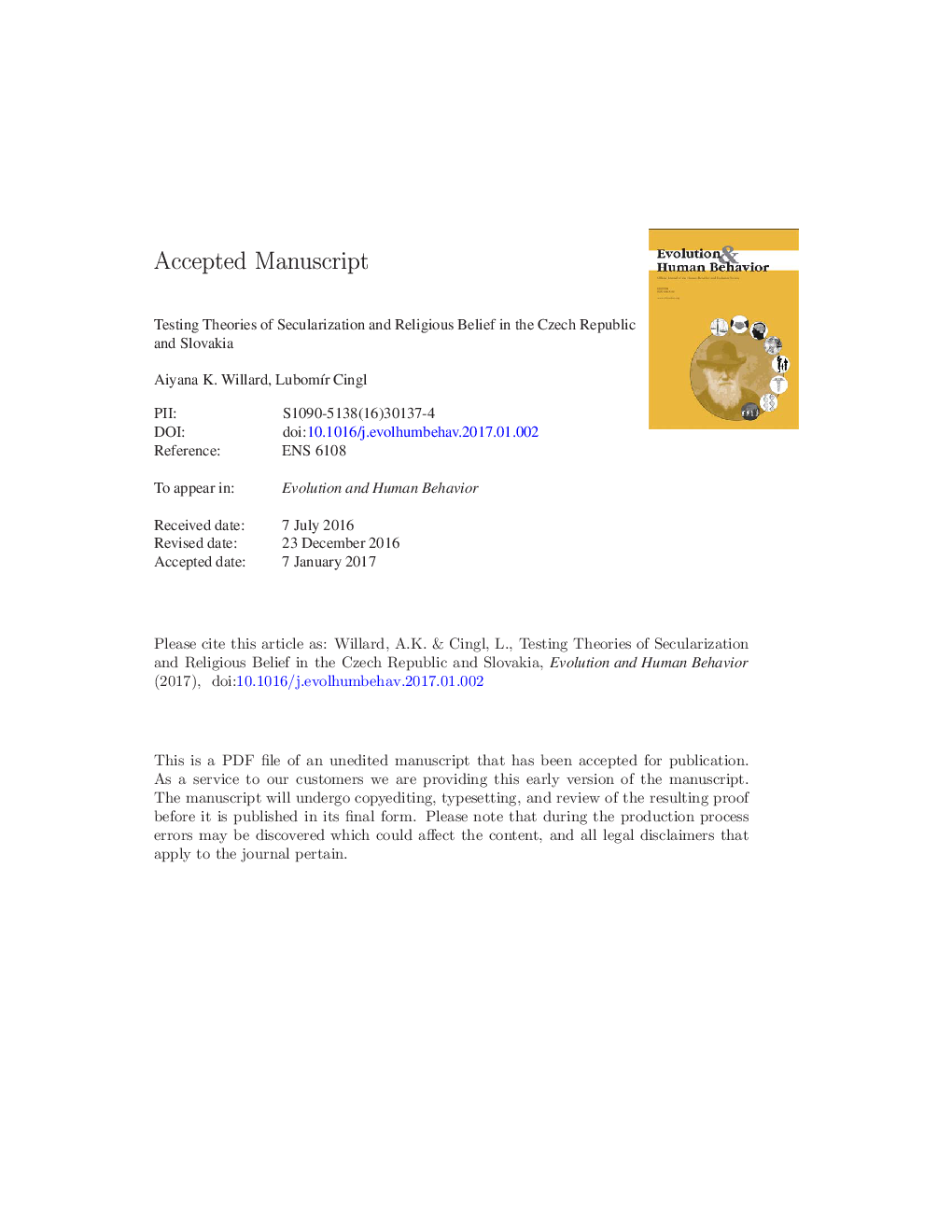ترجمه فارسی عنوان مقاله
تست نظریه های سکولاریزم و اعتقاد مذهبی به جمهوری چک و اسلواکی
عنوان انگلیسی
Testing theories of secularization and religious belief in the Czech Republic and Slovakia
| کد مقاله | سال انتشار | تعداد صفحات مقاله انگلیسی |
|---|---|---|
| 144904 | 2017 | 43 صفحه PDF |
منبع

Publisher : Elsevier - Science Direct (الزویر - ساینس دایرکت)
Journal : Evolution and Human Behavior, Volume 38, Issue 5, September 2017, Pages 604-615
ترجمه کلمات کلیدی
سکولاریزم دین، تعصب شناختی، اعتبار افزایش نمایشگرها، انتقال فرهنگی،
کلمات کلیدی انگلیسی
Secularization; Religion; Cognitive biases; Credibility enhancing displays; Cultural transmission;

